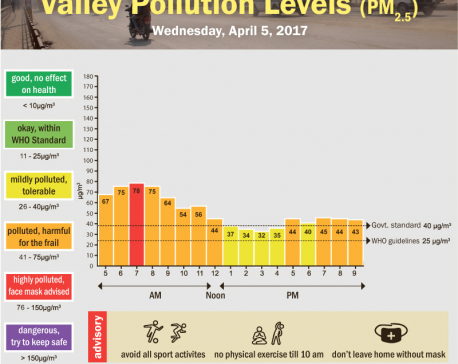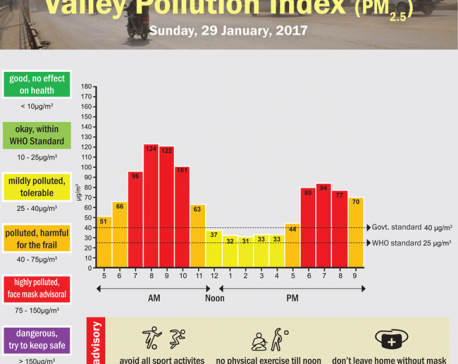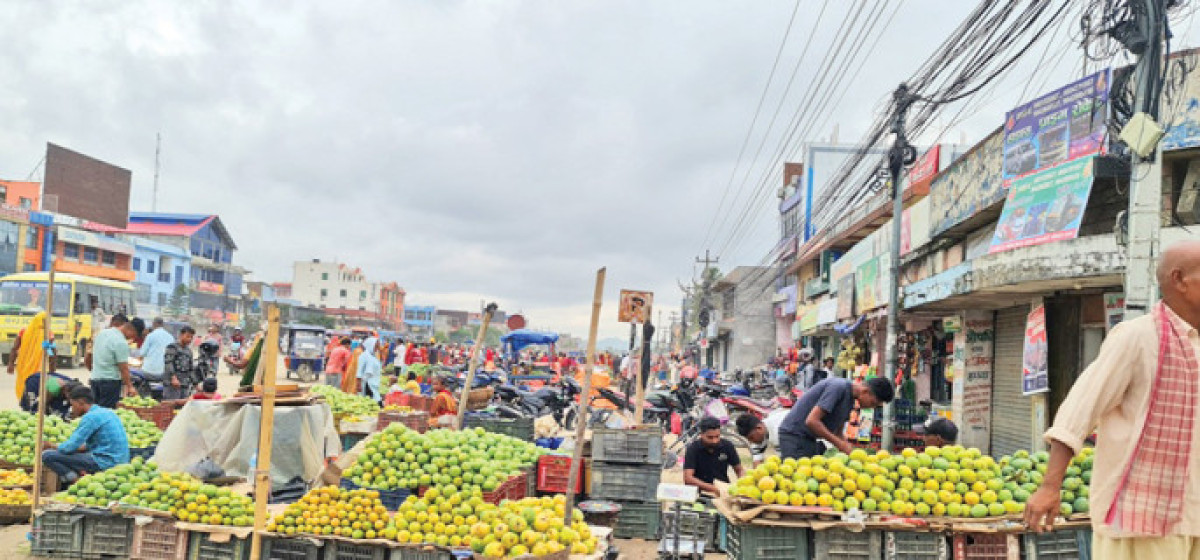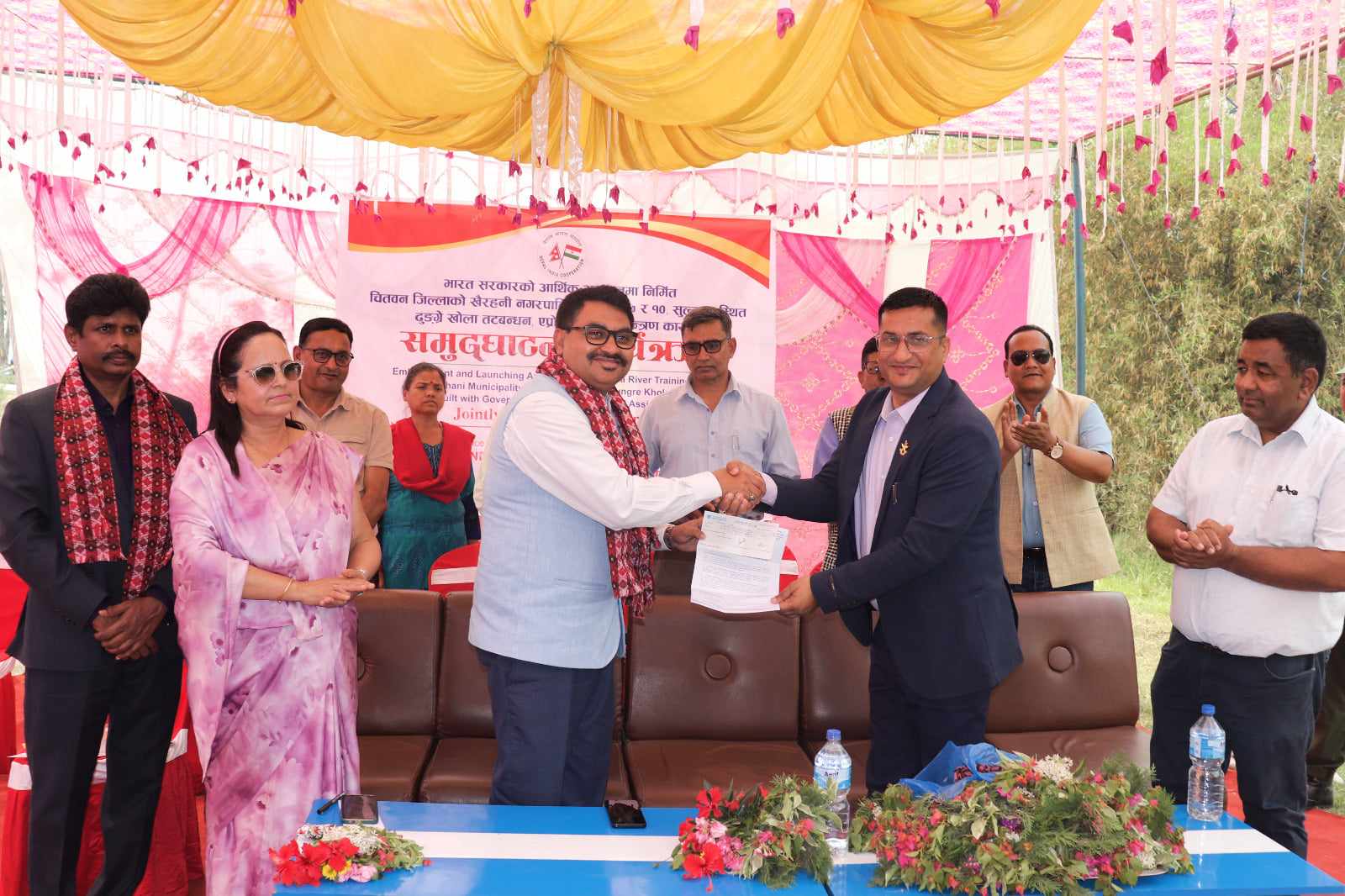
OR
Opinion
PADT Promoting Pollution on Pashupatinath Premises
Published On: February 23, 2023 08:05 AM NPT By: Anup KC
_20230223111426.jpg)

Anup KC
The author is s a Chemical Engineer/Music Producer/Social and Cultural activist.news@myrepublica.com
More from Author
It's strange but true that the Pashupatinath Temple area listed as a UNESCO World Heritage site does not have even a single waste bin. Nepal urgently needs a serious national “make nepal clean” campaign rather than a “visit nepal” campaign.
The Shivaratri festival celebration at the Pashupatinath Temple, one of the most important Hindu temples in the world and a UNESCO World Heritage Site, has just ended and it has been overshadowed by mismanagement, waste and air pollution. The temple complex, situated in Kathmandu, has become a hotbed for pollution and waste mismanagement, which has resulted in hazardous ground and air pollution levels in the city.
The Pashupati Area Development Trust (PADT), which is responsible for managing the temple, has been criticized for its lack of action in addressing the issue of waste management. Despite allocating a significant budget for cleaning the temple premises, workers only collect garbage from the pedestrian trails and burn it alongside walkways every morning. Waste segregation is non-existent, and piles of garbage are left unattended. It's difficult to fathom that the entire area of UNESCO World Heritage site “Pashupatinath” has no waste bin. The increasing problem of unattended waste, air pollution and water contamination have left a bad impression on pilgrims and tourists who pay Rs.1000 to enter the holy site filled with filth. This is very shameful for the entire NepalI population as caretaker folk of such a holy site. What impression are we sending to the world - that we are a poor as well as dirty nation? Why would someone want to visit such a place? Nepal urgently needs a serious national “make nepal clean” campaign rather than a “visit nepal” campaign.
According to the latest air quality data from the Department of Environment in Nepal, the average air quality index (AQI) in Kathmandu on February 17, 2023, was 198, which is classified as "unhealthy." The AQI scale ranges from 0 to 500, with higher values indicating higher levels of air pollution. A value between 151 and 200 is considered unhealthy, and can cause health effects for sensitive groups, including children, the elderly, and people with respiratory, heart disease or cancer.
The burning of waste contributes 19 percent to the air pollution in Kathmandu, while emission from vehicles has only 38 percent share in the air pollution.
Hence the mismanagement regarding open waste burning and wood burning cremation by the PADT at the Pashupatinath Temple is a significant contributor to air pollution.
Open burning of all types of waste, including plastics, is illegal in Nepal under the Solid Waste Management Act, which was implemented in 2017. The law requires individuals, organizations, and industries to properly manage their waste and imposes penalties for littering, dumping, and burning waste, including plastic. The government of Nepal has also implemented a number of other measures to reduce plastic waste and improve waste management, including promoting the use of reusable bags and encouraging the recycling of plastic waste.
However, enforcement of the ban on burning plastic has been challenging, and the practice remains widespread in many areas of the country, including Kathmandu. The government and other organizations have been working to raise awareness about the dangers of burning plastic and the importance of proper waste management, but more needs to be done to effectively enforce the laws and reduce plastic waste in Nepal.
Despite all this, the PADT continues to burn its waste in the open and additionally its officials promote wood-burning cremation for their petty financial gain, which is significant given the large number of Hindu cremations that take place at the temple. Currently, wood-burning cremations are conducted at a rate of 25 to 30 per day on average, and on peak days, it goes up to 60 per day. The PADT officials have intentionally made 2 out of 3 electric cremation furnaces non-functional from day one in order to promote wood-burning cremation, despite the fact that electric cremation is cheaper, more efficient, and environmentally friendly. The cremation cost for electric cremation is around Rs. 4000 and takes about 45 minutes to complete. On the other hand, wood-burning cremation costs around Rs. 12,000 to 15,000 and takes up to four hours to complete. If all three available electric cremation furnaces are made available to the public, the total capacity of electric cremation would be 72 cremations per 24 hours, which means it can easily replace the wood burning, meeting the total demand even at peak hours in winter.
With air pollution already a severe problem in the Kathmandu Valley, breathing Kathmandu’s air is like smoking 20 cigarettes a day! Hence, it is critical that the PADT takes steps to increase public awareness of the availability of cheaper and environmentally-friendly alternatives like electric cremation and immediately make all three available furnaces functional. The PADT's promotion of wood-burning cremation for petty personal economic gain and its failure to provide environmentally-friendly alternatives puts the entire population in the Kathmandu Valley in danger due to high particulate matter levels in the air that people breathe.
In conclusion, the mismanagement of waste and promotion of environmentally harmful practices by the PADT at the Pashupatinath Temple and the corruption scam its officials are involved in is almost disgusting. As Pashupatinath is the head of our holy sites, every Nepali should be concerned when this holy place is run by unqualified, undignified, corrupt groups, disregarding all civic norms of our ancient civilization. It's literally a slap on the face of each dignified Nepali citizen; we definitely can and deserve better at Pashupatinath’s management. Hence the PADT should either get a complete overhaul or its management should be handed over to the Nepal government/KMC.
The burning of waste and promotion of wood-burning cremation for petty financial gain puts the health of entire population in danger.Improving waste management practices, promoting sustainable alternatives, and raising public awareness are all necessary steps toward reducing pollution and improving air quality, eventually the overall quality of life in capital city Kathmandu. When are we going to see the clean, green, well managed, corruption free UNESCO World Heritage Site, the holiest Hindu temple Pashupatinath?"
Instead of welcoming pilgrims and tourists with friendly banners, there is a huge signboard of coca cola and a trash pile at the main Gate of Pashupatinath while coming from the Tribhuvan International Airport!
You May Like This

Valley Pollution Levels
The graph above is based on the pollutant of fine particulate matter, PM2.5 (PM less than 2.5 microns) of Kathmandu... Read More...

Valley Pollution Levels
The graph above is based on the pollutant of fine particulate matter, PM2.5 (PM less than 2.5 microns) of Kathmandu... Read More...

Valley Pollution Index
The graph above is based on the pollutant of fine particulate matter, PM2.5 (PM less than 2.5 microns) of Kathmandu Valley in a... Read More...



Just In
- Foundation stone laid for building a school in Darchula with Indian financial assistance
- 151 projects to be showcased for FDI in Third Investment Summit
- Police disclose identity of seven individuals arrested with almost 2 kg gold and more than Rs 10 million in cash
- NIMSDAI Foundation collaborates with local govt for Lobuche Porter’s Accommodation Project
- Home Ministry directs recalling security personnel deployed for personal security against existing laws
- Fake Bhutanese refugee case: SC orders continued pre-trial detention for seven individuals including former DPM Rayamajhi
- ADB Vice-President Yang pays courtesy call on PM Dahal
- PM Dahal, Chairman of CIDCA Zhaohui hold meeting
















Leave A Comment